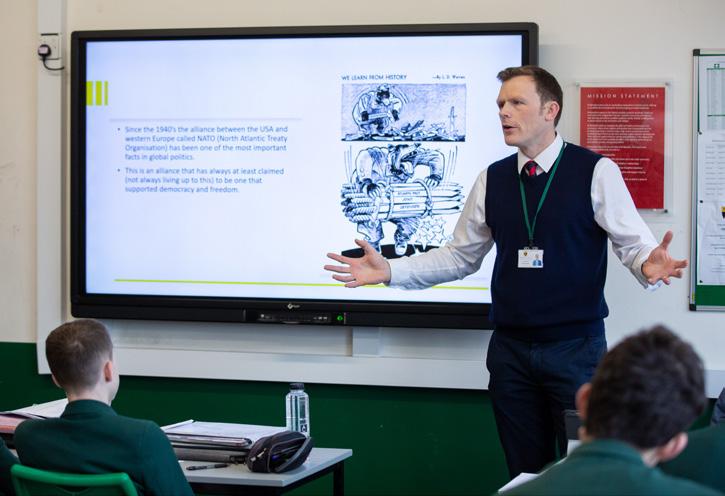
6 minute read
Teaching Truth In An Age of Misinformation
Why schools must engage with political controversy
Schools are no strangers to difficult conversations. We deal with them every day - whether it’s talking about racism, safeguarding, free speech or online harms. But when it comes to politics, especially the kind that stirs up strong opinions, there’s often a nervousness. How do we address figures like Donald Trump or Elon Musk in a way that helps students think critically rather than simply absorb the loudest voices around them? How do we talk about misinformation, political spin and ideological bias without falling into the same traps ourselves?
The answer is not to avoid these issues but to equip students with the tools to navigate them. This means moving beyond the reductive outrage that fuels social media and towards something far more valuable - an ability to separate fact from fiction, to interrogate sources and to think independently.
Recently, in PSHE at St Benedict’s, we looked at Trump’s inauguration and the response to a sermon given by Bishop Mariann Budde, who urged him to show compassion for immigrants, LGBTQ+ people and those afraid of his policies. The backlash was immediatesome called for her deportation and Trump himself questioned whether unelected figures should be making such statements at all. At the same time, we discussed Elon Musk, the world’s richest man, who has no political office, but whose words reach millions. He recently claimed that Britain is a dystopian police state where young working-class women are routinely kidnapped by immigrants - statements that have no basis in fact, but spread rapidly across his platform. What do we do with this? How do we help students make sense of it? The instinct might be to tell them what’s true and what isn’t, but that’s not enough. In a world where authority itself is questioned, where trust in traditional media has eroded and where young people are far more likely to get their news from TikTok than a newspaper, simply stating: “This is the truth.” is ineffective. They need to understand how to find reliable information themselves.
The internet does not present information neutrally: algorithms feed users content that reinforces their existing beliefs. Viral posts don’t prioritise accuracy, but rather engagement - whatever sparks the strongest reaction, whether anger, fear or outrage. If schools do not actively teach students to question what they see, we risk raising a generation vulnerable to manipulation, more influenced by who shouts the loudest rather than by the weight of evidence.
Holocaust Memorial Day offers a particularly sharp reminder of why this matters. The Holocaust did not happen in a vacuum. It was made possible by propaganda, by the slow dismantling of truth, by the deliberate use of misinformation to justify discrimination and violence. The famous words of Pastor Martin Niemöller: “First they came for the Communists, and I did not speak out because I was not a Communist…” are not just about speaking up, they are also about recognising when narratives are being shaped to control public perception.
This is where schools have a duty. It is not about indoctrinating students into a particular way of thinking or presenting a set of ‘approved’ opinions. It is about giving them access to primary sources, to different viewpoints and to the historical context needed to form their own conclusions. It is about making them comfortable with complexity; understanding that issues are rarely black and white, that political figures are not cartoon villains or heroes and that reality is more nuanced than the soundbites would suggest.
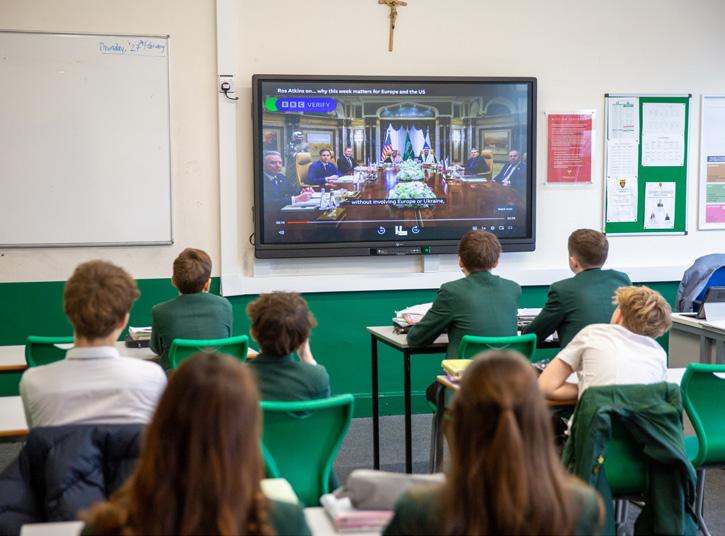
It is also about teaching media literacy. The assumption that young people, having grown up with the internet, are naturally good at spotting misinformation is simply wrong. They might be fluent in navigating platforms, but that does not mean they are skilled at recognising bias or questioning sources. If we do not explicitly teach them how to evaluate the information they consume, we are failing them.
This does not mean we, as teachers, have to be neutral on everything; it is entirely possible to challenge misinformation without stepping into party politics. If a politician claims something demonstrably false, we should say so. If a narrative is being deliberately skewed, we should highlight it. But we must also model intellectual humility - the ability to say: “Here’s the evidence, here are different interpretations, what do you think?” That is what real critical thinking looks like.
Encouraging students to ask questions, to challenge assumptions and to seek out truth for themselves is not about making them ‘political’. It is about making them informed and in an era when misinformation shapes elections, fuels division and even endangers lives, that is not an optional extra. It is one of the most important things we can teach them.
LUKE RAMSDEN Senior Deputy Headmaster www.stbenedicts.org.uk
TURN TO PAGE 69 to learn about Staying Safe Online
Education Corner Podcast With
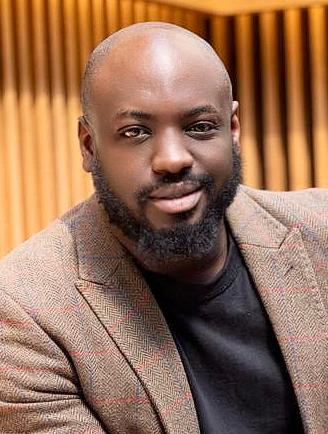
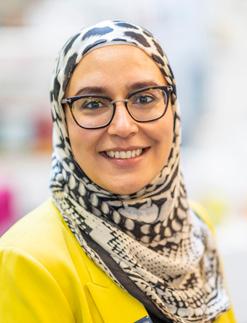
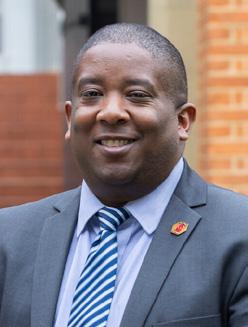
Mr. Marvyn Harrison
Founder Of Dope Black Dads And Belovd
Mrs. Monia Sahar Zahid
HEAD OF EDI AT HABERDASHERS’ BOYS’ SCHOOL AND
Mr. David Mulae
ASSISTANT HEAD PASTORAL AND EDI LEAD AT CRANLEIGH SCHOOL
A panel discussion about the importance of teaching and embracing equality, diversity, inclusion and belonging in education.
In a period where it can often seem society is increasingly polarised, reflecting on the progress made in regards to equality, diversity and inclusion in education so far is a reminder of the power and importance of inclusive education. Monia Zahid, Head of Equity, Diversity and Inclusion at Haberdashers’ Boys’ School, shared: “There is evidence of continued progress. You walk into any classroom and you will see differentiated teaching methods, you’ll see anti-discrimination policies and an emphasis on wellbeing and mental health. That is all progress that has been made over a very long time.” Remaining resilient and patient is also central to the outlook of Marvyn Harrison, Founder of Dope Black Dads and Belovd, as he reminded us: “We have to be very aware that change happens significantly slower than maybe we would like.” However, our guests remain dedicated to looking towards the future and continuing to make progress: “While we’ve modernised our thoughts on how best to provide support, the idea of promoting support and belonging remains equally important.” David Mulae, Assistant Head Pastoral and EDI leader at Cranleigh School, told us.
Cultural humility - defined in the Cambridge Journal as: “A lifelong process of self-reflection and self-critique, whereby the individual not only learns about another’s culture, but one starts with an examination of his or her own beliefs and cultural identities.” is also central to teaching about EDIB and making progress. David shared the ways in which they promote this at Cranleigh: “What we want to do is promote children’s social awareness [...] by creating cultural literacy within young people. This is mainly through continued conversation, through the curriculum and through broader school recognition events.” This includes school-wide celebrations of holidays such as Rosh Hashanah, Ramadan and Lunar New year, both within dedicated PSHE lessons and in day-to-day life at the school. Marvyn also shared the impact of this on his personal life: “I think really getting to experience all the different cultures and hear the languages, see the food and the religious practices has really brought me a lot of wisdom. I think it’s something that’s really incredible, and it should happen in the school environment.”
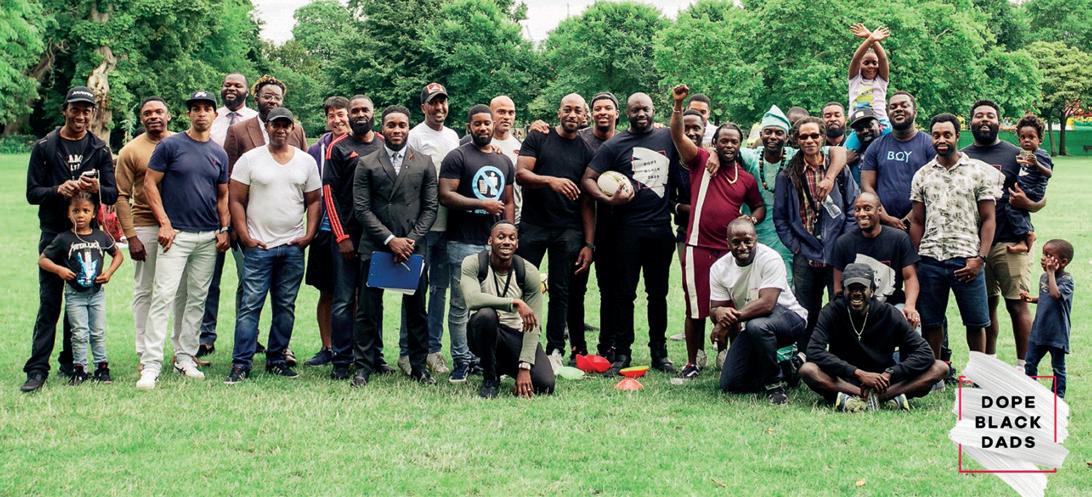
The Afro-Caribbean Education Network (ACEN) holds annual conventions dedicated to promoting EDIB in education, where teaching staff, students and academics come together to share experiences and best practices for the sector. Both David and Monia have attended these conferences and shared how they have been impacted both personally and professionally. “Professionally, I’ve worked in independent schools, some with large numbers of black and brown pupils, but most are predominantly white environments,” David shared, “the ACEN conference was the first time I sat in a room of teaching professionals who not only were talking about equity, diversity and inclusion (topics that I believe strongly in) but also in a room of people that looked like me.” The recent conference focused on Heads and Deputy Heads, “The leadership of this needs to come from the top.” David told us. Monia also shared: “One of the most important things about the ACEN conferences is that it uniquely provides a platform for some real, honest conversations.” By bringing students and educators together to share experiences, it allows for greater understanding of the real experiences and feelings of the students at the heart of the issue: “When the students are the ones who are addressing you, you really are forced to recognise the importance of the work that you’re trying to do as well.” By centering the young people most affected by these issues, events such as the ACEN conference empower educators to collaborate with one another and external agencies to provide the best education and resources for their students.
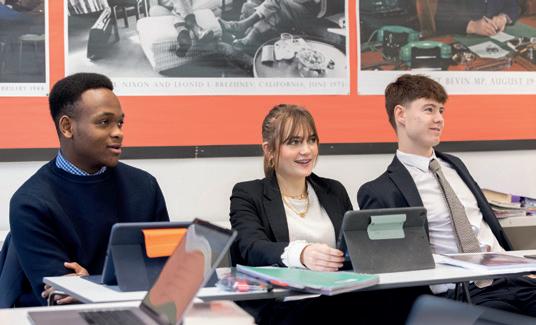
Since President Trump’s inauguration in January,

